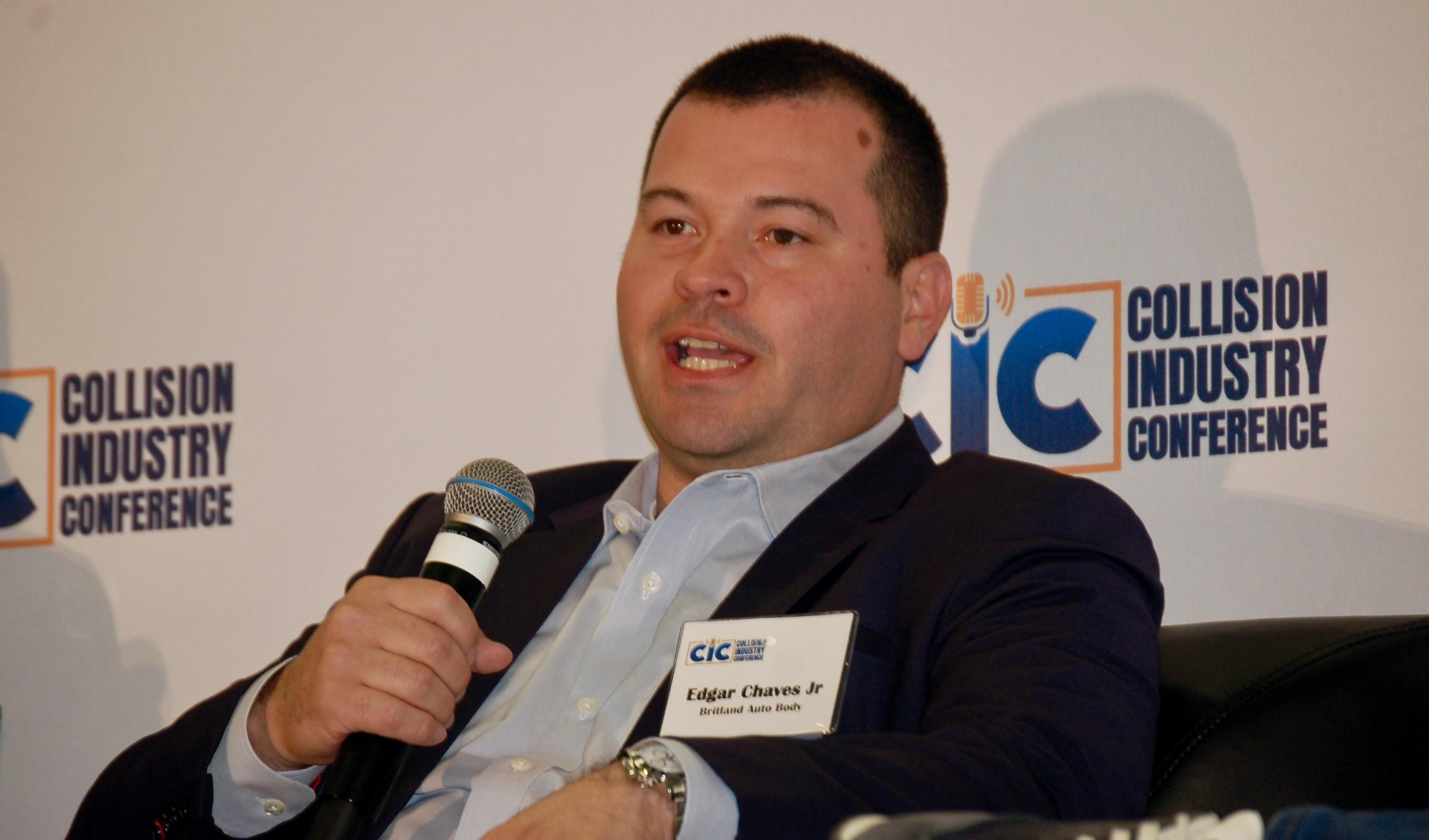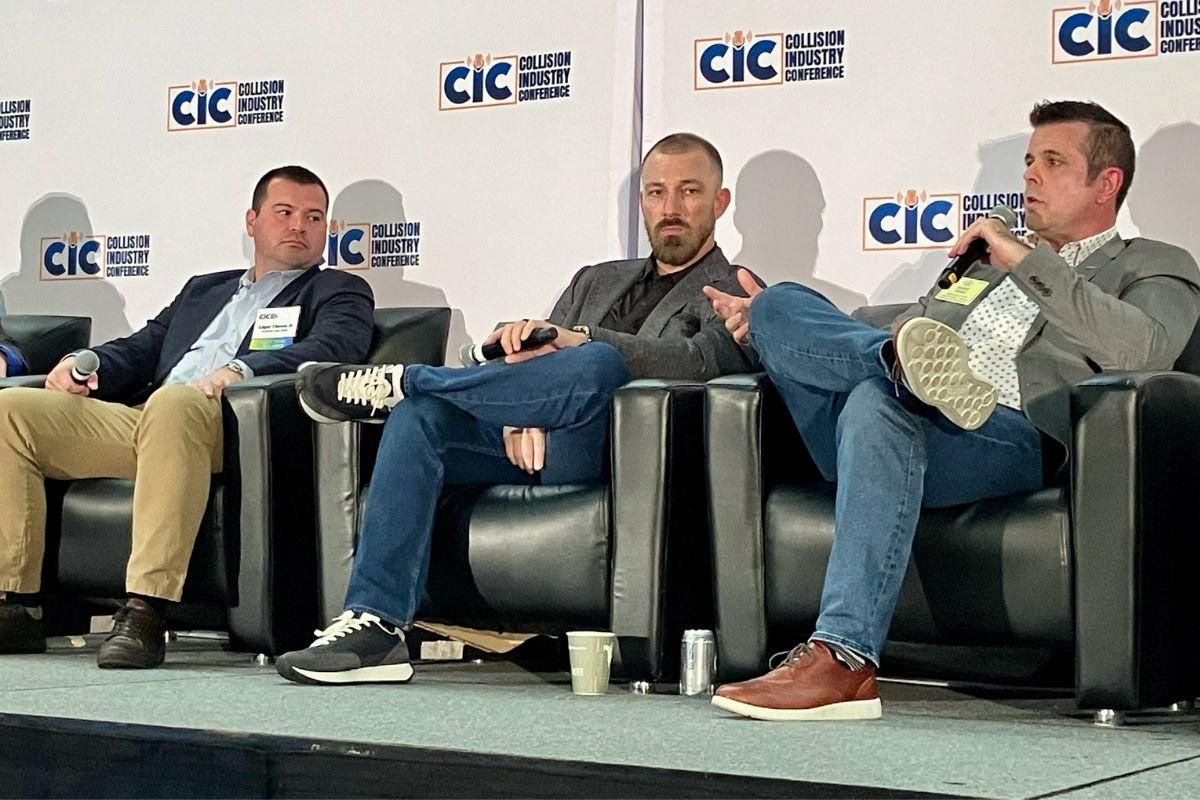The industry’s hiring spree in 2023, combined with an increased number of in-shop apprenticeship programs and a downturn in claims over the past 18 months, has brought some relief to the long-time collision repair technician shortage. But the need for new hires has by no means disappeared: One industry survey earlier this year found only one-third of shops were fully staffed with no job openings.
Against that backdrop, a panel of collision repairers at the recent Collision Industry Conference (CIC) in Richmond, VA, shared how they’ve tried to build a positive culture within their business that fosters employee motivation, career growth and loyalty.
“I think the main thing is to involve your team,” said Barry Dorn, who recently sold his Virginia collision repair business. “There are so many companies that don’t plan out the employee’s career path or know the destination they want to ultimately get to. We assume that we know where they want to go, and that they should know how to get there. We want them to do what they want to do because that’s where they’re going to be most proficient.
“But you have to support them every bit of the way, and you have to help guide them. You have to mentor them,” he continued. “So many shops don’t have those mentors in place. So [employees] end up learning from someone they shouldn’t learn from. Let’s put the right folks in place to help them. They’ve got to know that we care about them and their future. Knowing them as a person makes a really, really big difference.”
Michael Bradshaw of K&M Collision in Hickory, NC, said he similarly takes a team approach within his business, paying technicians hourly, for example, with incentives based on what the entire team produces.
“We have daily meetings as a team, to try to foster communication within the team,” Bradshaw said. “We do things outside of the shop together. We’ll have a retreat where the entire staff spends a couple days, or we’ll do some kind of crazy activity. The last time we went to race go-karts and somebody cracked a rib, so we’ve crossed that one off the list,” he said, laughing.
Like Dorn, he said it’s important to get to know each employee’s goals, what makes them tick.
“And we try to get buy-in from the team by involving them in some of the big decisions,” Bradshaw said. “A big decision for us was going to a four-day work week. We didn’t come in and tell everybody, ‘Hey, we’re moving to four days.’ We discussed it with them, we talked about the pros and cons. We took a vote as a team and let them decide if they wanted to do that or not. So I think really our approach is having an open dialogue policy, trying to do things with the team versus to the team.”
 Edgar Chaves Jr. of Britland Auto Body in Jersey said he and his managers continue to take leadership training.
Edgar Chaves Jr. of Britland Auto Body in Jersey said he and his managers continue to take leadership training.
Bradshaw said it can be difficult as a single-shop business, no matter how large, to continue to give long-term employees an upward career path.
“While they may love what they do, it can get kind of repetitive sometimes,” Bradshaw said. “You’re doing the same thing every day. Cross training has been a big thing for us of late. So give a technician the opportunity every so often to do some glasswork or some more mechanical-oriented work or things like that.
“We’ve found that for our guys, learning things that maybe don’t necessarily apply to their day-in and day-out tasks kind of keeps them engaged,” Bradshaw said. “They’re learning something that’s new, and feel like they’re progressing and gaining more knowledge. And it’s also helped when we have somebody who is out, because now we have someone else who has some experience in that role.”
He also pointed to the importance of consistently enforcing accountability within the shop.
“I care about every individual who works for us, but you also have to understand—and this was a hard one for me—that at the end of the day, you're their boss and you’re their leader, you're not their friend,” he said. “So there are going to be times and conversations and meetings that occur where they’re not really going to like you, and you’ve got to be OK with that. Trying to be their friend as their boss has a negative impact on culture because that accountability piece is not there.
“That for me was something that was really hard and that I struggled with for a long time. Being comfortable in knowing that I have a plan in place, and I know where we’re going, and that if everybody follows the plan, we’re going be where we need to be. And it’s OK if we don’t like each other in that moment, but we still respect each other.”
Panelist Edgar Chaves Jr. of Britland Auto Body, which operates three shops in New Jersey, said that was something he’s struggled with as well.
“I still take leadership coaching, and offer that to all of our managers as well,” Chaves said. “I always tell everybody, if we can be friends, that’s great, but we don’t need to be best friends. When we have a one-on-one, the first thing I always do is just talk about personal things for five minutes at the start to kind of bring any emotions down. And then the first question that I always ask is: Did I make any promises to you that I did not keep? Because I have to be held accountable first.”














John Yoswick